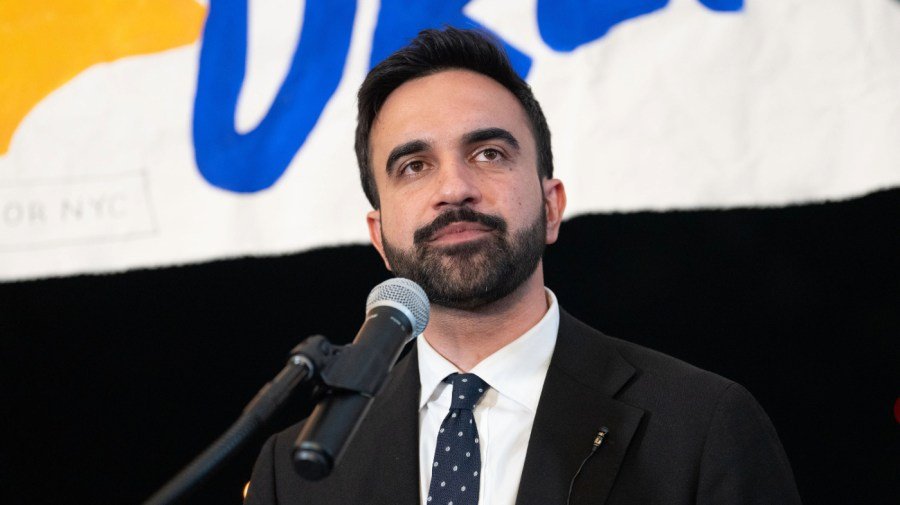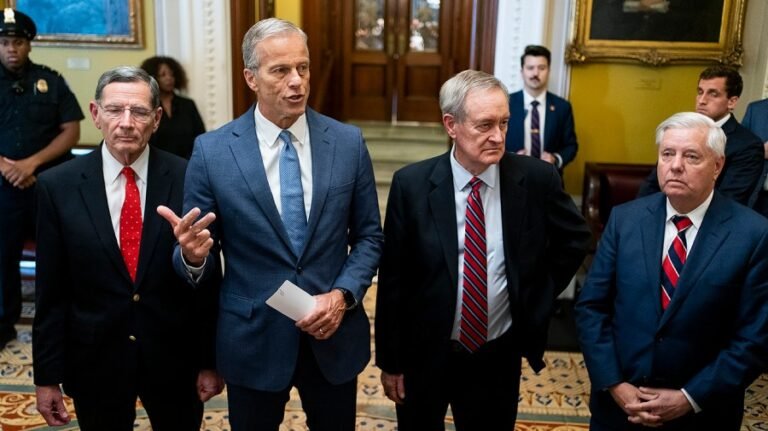
If a key takeaway from the 2024 election was that the Democratic Party needs to move closer to the center on economic and social issues, last week’s elections in New York City make clear that Democrats haven’t learned their lesson.
Indeed, 33-year-old State Assembly member Zohran Mamdani’s upset win over former Gov. Andrew Cuomo suggests that Democrats, rather than rediscovering their roots, continue moving further to the left.
Moreover, while progressives and Democratic Socialists will rejoice at Mamdani’s likely victory in the general election, moderate Democrats are uneasy, reflecting a party polarized between its moderate and progressive wings, unsure of which direction it wants to go in.
To be clear, there is no denying that Mamdani’s high-octane campaign should be a roadmap for Democrats.
He tapped into deep underlying frustrations with the cost of living and energized young people who typically are less reliable voters. Further, he connected with voters in a way that Democratic party leaders largely failed to do in the last election.
However, one can believe that Democrats should absorb the lessons of how to run an energetic, upbeat campaign while also being alarmed at the direction Democrats appear to be heading in.
Mamdani ran on a platform with ideas so nonsensical that they managed to unite the editorial boards of the New York Times and New York Post in condemnation of his inability to lead a city as large as New York.
In that vein, there are four fundamental concerns with Mamdani, and one additional lesson Democrats should internalize.
The first concern is Mamdani’s self-professed socialism and extreme ideas. Polling in the months that followed the 2024 election made clear that even Democratic voters want their party to move toward the center, not further to the left.
A considerable plurality (45 percent) of Democrats and Democrat-leaning independents said they want their party to be more moderate, versus 29 percent who say the party should be more liberal, per Gallup polling.
Compared to the same poll conducted in 2021, the share of Democratic voters wanting the party to move towards the center has increased by 11 points, while the share wanting the party to be more liberal has dropped by 5 points.
Republicans will try to portray Mamdani’s far-left policies of free public transit, defunding the police and opening city-owned grocery stores — which even the Soviet Union eventually realized was a bad idea — as representative of the entire Democratic Party.
In fact, President Trump and Vice President JD Vance have already begun doing so.
Trump blasted Democrats for selecting a “100 percent Communist Lunatic” and Vance offered tongue-in-cheek congratulations to Mamdani as the “new leader of the Democratic Party,” additionally calling him an “antisemitic socialist radical.”
Second, as the New York Times noted, Mamdani is simply not qualified to run New York City.
Aside from his far-left ideas, inexperience, and age, his attacks on capitalism, in what real estate executive Scott Rechler called “the capital of capitalism,” and his plans to drastically ramp up taxes are bound to decimate the city’s economy.
In that same vein, the third concern is whether or not Mamdani will stand up to President Trump on certain issues.
California Gov. Gavin Newsom (D), who is significantly more experienced and qualified, has done well in this regard, but even Newsom sometimes fails to navigate his relationship with the White House.
Will Mamdani, who has no experience, do better? Or, more likely, will he find himself clashing with both Trump and his own governor, Kathy Hochul (D), who has already come out in opposition to Mamdani’s tax policies, a cornerstone of his campaign.
Assuming Mamdani wins the general election, which he is favored to do, one final concern emerges. That is, how will Mamdani govern?
If his tenure mirrors that of Chicago Mayor Brandon Johnson, another socialist who ran a very similar campaign, it may do more than damage New York City; it may also tar Democrats.
Mamdani would be sworn in next January, 10 months before the 2026 midterms. And the peak of his tenure would be during the 2028 Presidential election.
If Mamdani has a similar approval rating to Johnson, just 26 percent in recent polling, at that time, Republicans will benefit.
For their part, elected Democrats have expressed a range of reactions, ranging from lukewarm support to outright rejection.
Party leaders Sen. Chuck Schumer (D-N.Y.) and House Minority Leader Hakeem Jeffries (D-N.Y.) congratulated Mamdani but, importantly, stopped short of offering him a full-throated endorsement.
More of New York’s centrist Democrats, such as Reps. Laura Gillen, Tom Suozzi and Josh Gottheimer, all distanced themselves from Mamdani, with Gillen saying that Mamdani has “a deeply disturbing pattern of unacceptable antisemitic comments.”
And Larry Summers, Treasury secretary under former President Bill Clinton, wrote that he was “profoundly alarmed about the future” of a party which elected “a candidate who failed to disavow a ‘globalize the intifada’ slogan and advocated Trotskyite economic policies.”
To be sure, despite these concerns, there is one very real takeaway for Democrats, especially as the party decides its future direction. Mamdani won because he ran a high-energy campaign that excited voters with its enthusiasm. At a time when voters on both the political right and left are fed up with the establishment candidates, Mamdani tapped into something very real.
Likewise, the problems Mamdani campaigned on, primarily affordability, are legitimate concerns, even if his solutions are misguided. Voters have been telling candidates on both sides that the high cost of living is a top concern, yet very little has been done about it.
With that in mind, it is critical that Democrats choose candidates and run campaigns that provide real solutions — not extreme ideas like Mamdani’s, which are not grounded in reality.
Consider the three issues that propelled Trump to victory in November: cost of living, crime and public safety, as well as immigration. On the first two, Mamdani has promised extremely high taxes that suffocate businesses to fund massive public spending projects and (at least in the past) to defund the NYPD. This is significantly further to the left than former President Joe Biden and Vice President Kamala Harris, whose ideas voters rejected last November.
And on immigration, if Mamdani doubles down on New York City’s sanctuary city laws, it will reinforce the idea that Democrats care more about migrants — even violent criminals — than American citizens.
Put another way, Democrats need candidates who connect with voters, speak to the issues they genuinely care about — not in platitudes, but with actual solutions — and run campaigns that generate enthusiasm.
Ultimately, the Democratic Party finds itself at a crossroads, polarized between its moderate and progressive wings, which have vastly different ideas for the future. It is imperative that Democrats find their footing and decide which way the party will go.
It is our hope that the moderate wing prevails and the Democratic Party returns to its roots, rather than continuing further to the left.
New York City is in no way representative of most of America, and it’s hard to see how, if candidates like Mamdani become the national face of the party, Democrats will emerge from the political wilderness anytime soon.
Douglas E. Schoen and Carly Cooperman are pollsters and partners with the public opinion company Schoen Cooperman Research based in New York. They are co-authors of the book, “America: Unite or Die.”

